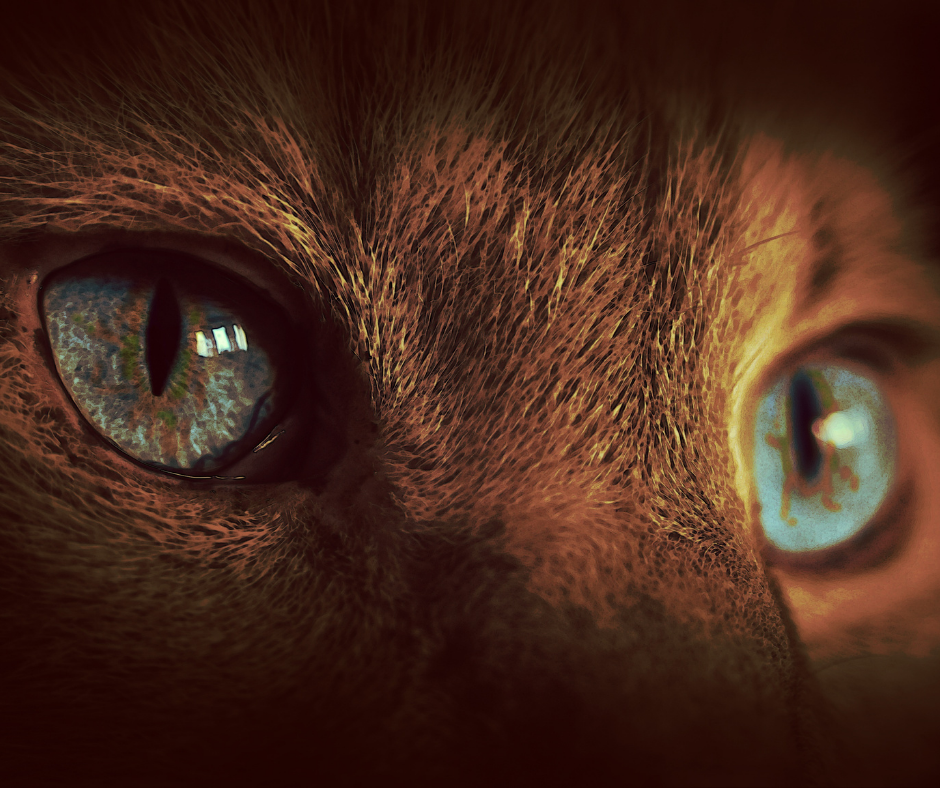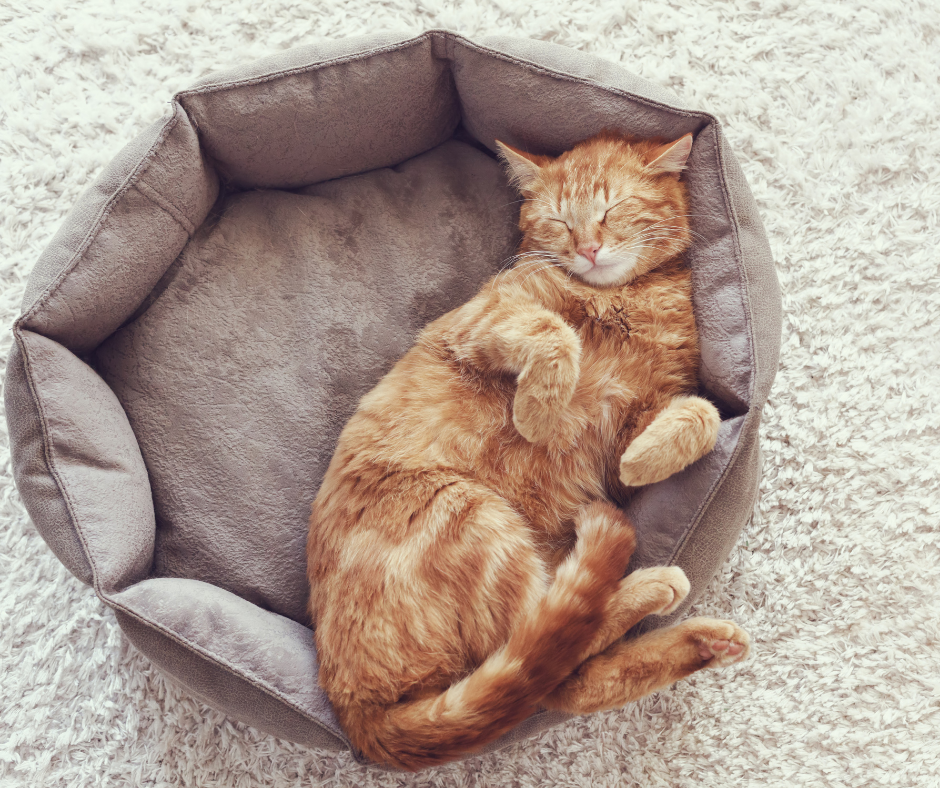Are you on the receiving end of some kitty affection at unfavourable hours of the night? Maybe a paw tap to rouse you from your slumbers, or how about a head butt just to make sure you are properly awake? Whatever your cat’s tactics, you may get a little frustrated if your fluffball friend persists in disturbing your sleep. In this article we will take a look at the possible reasons behind your feline’s night-time wanderings.
Cats at night
Cats are traditionally thought of as nocturnal animals, prowling the neighbourhood under the cover of darkness. However, strictly speaking they are in fact crepuscular, meaning that they are more active at dawn and dusk. Although the feline internal body clock has a strong bearing on behaviour patterns, household routines will also have an influence. For example, younger cats tend to be more active than older cats at night, becoming more in tune with their humans as they get older.
Can cats see in the dark?
To help navigate the neighbourhood after dark, a cat’s night vision is much more sensitive than that of humans. Several clever adaptations to the feline eye enable this excellent night sight:

- High rod to cone ratio
The feline retina is home to two types of light receptor cells – rods which are excellent for night vision, and cones or colour receptors which are more useful for daytime vision. Having more rods relative to cones (a higher rod to cone ratio) helps the feline eye see in low light conditions.
- Pupil size
The feline pupil is able to dilate fully, allowing more light in to reach the light-sensitive retina.
- Tapetum lucidum
A bit of a mouthful maybe, but this mirror-like reflective layer sits behind the retina at the back of the eye. It bounces the light beams back onto the rod cells thus enhancing sensitivity to light. Ever wondered why your cat’s eyes seem to glow after dark? Well, it’s the mirror-like tapetum lucidum doing its job.
Combined, these adaptations mean that the feline eye is up to eight times better at seeing in low light conditions than human eyes.
For more information on cat vision why not check out this article on cat vision.
Why are my cats waking me up at night?
If you share your home with a feline night owl, you may well wonder why your cat or cats persist in disturbing your sleep. They can be very noisy when they want your attention and the sound of cats whining at night is nigh-on impossible to sleep through. Let’s take a look at the reasons that your cat may be waking you up at night:
- Normal cat behaviour
The feline instinct to hunt and be active, especially at dawn and dusk, may not be quite in tune with the human desire for sleep.
- Hunger
Make sure that your cat is well fed. Frequent small meals during the day can help to make sure they can last the night without a midnight feast.
- Boredom
A cat that is full of beans and bursting with energy at bedtime is unlikely to leave you in peace for the full eight hours. Make sure that your kitty has plenty to keep them occupied during the day. Why not spend some time playing with your four-legged friend in the evening, so they are ready for sleep at bedtime?
- Illness
Keep an eye out for any signs that your kitty may not be feeling quite themselves and seek veterinary advice if necessary. Medical conditions that can cause night-time waking include:
- An overactive thyroid gland (hyperthyroidism)
- Urinary tract infections
- Pain
- Age-related behavioural changes such as dementia or cognitive dysfunction
- Unneutered cats
Cats that have not been spayed (females) or castrated (males) are much more inclined to whine at night and protest about staying indoors. Neutering is advisable in almost all cats.
Where should cats sleep at night?
Where your cat sleeps at night is largely a matter of personal preference. Maybe your kitty likes the luxury of a cosy cat bed. Or they may miaow pitifully at your bedroom door until you make room for them to snuggle up next to you – what could be better than a feline hot water bottle? Some cats are happy with a simple cardboard box, however much you try and persuade them otherwise. Wherever your cat chooses to sleep (and let’s face it, your feline will be the decision-maker here), if they are safe and warm, you won’t go far wrong.

Are cats allowed outside at night?
Given the choice, many cats would be out and about at night. However, risks to your fluff ball do increase once darkness falls.
- Road traffic accidents – more common at night due to increased speed of cars on quieter night-time roads and poorer visibility.
- Fighting – confrontations between cats are more common at night as they try their luck exploring other territories.
- Pet theft – may be more common under the cover of darkness.
- Straying – cats may roam further at night, increasing the risk of them getting lost and being unable to find their way home.
Staying indoors at night may not suit all cats, but with time, most can adapt to a new routine. Microchip-activated timed cat flaps can be handy – they can be set so that at a particular time your kitty can no longer leave the house but can still enter if they are not yet home.
Is it bad to put a cat in a cage at night?
Training a cat to sleep in a cage is usually not necessary and can be very challenging because most cats do not like being confined. In fact, many cats will spend all night trying to escape, and their vocal protests will have entirely the opposite effect to the peace and quiet that you desire! However, there are times when a cage may be useful, for example:
- Litter training a kitten
- To provide a refuge for a cat in a busy household
- For medical reasons, such as during recovery from an injury
Found this useful? Head on over to our cat advice page, for more fascinating articles.


